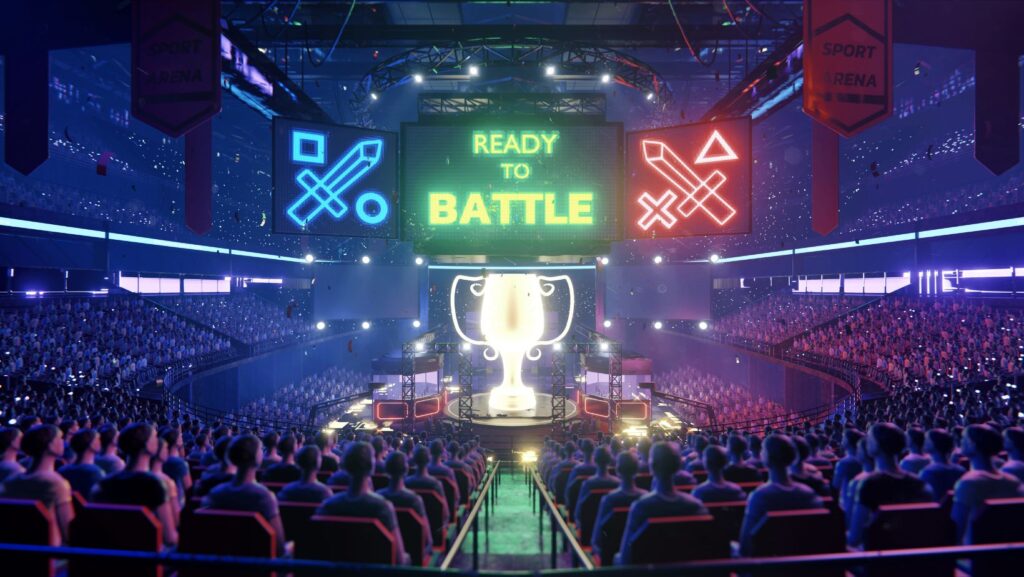 In recent years, Sports tournaments online have skyrocketed in popularity, transforming video gaming from a casual pastime into a global phenomenon. These competitive events draw millions of viewers and participants, all eager to showcase their skills and witness high-stakes matches. With massive prize pools and professional teams, eSports has firmly established itself as a legitimate and thrilling spectator sport. From iconic titles like League of Legends and Dota 2 to emerging games, eSports tournaments offer something for every gaming enthusiast. The electrifying atmosphere, combined with cutting-edge technology and strategic gameplay, captivates audiences worldwide. As the industry continues to grow, it’s clear that eSports is not just a trend but a cultural revolution reshaping the future of entertainment.
In recent years, Sports tournaments online have skyrocketed in popularity, transforming video gaming from a casual pastime into a global phenomenon. These competitive events draw millions of viewers and participants, all eager to showcase their skills and witness high-stakes matches. With massive prize pools and professional teams, eSports has firmly established itself as a legitimate and thrilling spectator sport. From iconic titles like League of Legends and Dota 2 to emerging games, eSports tournaments offer something for every gaming enthusiast. The electrifying atmosphere, combined with cutting-edge technology and strategic gameplay, captivates audiences worldwide. As the industry continues to grow, it’s clear that eSports is not just a trend but a cultural revolution reshaping the future of entertainment.
E Sports Tournament
Historical Context
 Competitive gaming started in the 1970s with small-scale contests for games like Spacewar and Pong. The Space Invaders Championship in 1980 marked a pivotal moment, attracting more than 10,000 participants. Early tournaments were local events organized chiefly by gaming enthusiasts. The 1990s introduced foundational changes with the emergence of networked play and the internet. Games like Doom and Quake pioneered online multiplayer competitions, propelling the concept of eSports into broader consciousness. The Cyberathlete Professional League (CPL), established in 1997, provided infrastructure for competitive gaming, laying the groundwork for future tournaments.
Competitive gaming started in the 1970s with small-scale contests for games like Spacewar and Pong. The Space Invaders Championship in 1980 marked a pivotal moment, attracting more than 10,000 participants. Early tournaments were local events organized chiefly by gaming enthusiasts. The 1990s introduced foundational changes with the emergence of networked play and the internet. Games like Doom and Quake pioneered online multiplayer competitions, propelling the concept of eSports into broader consciousness. The Cyberathlete Professional League (CPL), established in 1997, provided infrastructure for competitive gaming, laying the groundwork for future tournaments.
Growth of Popularity
The early 2000s saw exponential growth in eSports, driven by games like StarCraft and Counter-Strike. South Korea became a key hub, with television channels dedicated to gaming and high-profile tournaments. The global audience for eSports surpassed 200 million by 2015. Prize pools also soared during this period. For instance, the Dota 2 International tournament’s prize pool exceeded $40 million in 2021. Corporate sponsorships and streaming platforms like Twitch and YouTube contributed significantly to this growth. Today’s eSports tournaments rival traditional sports in terms of viewership, engagement, and economic impact.
Major Tournaments
The International
The International stands out as one of the most prestigious sports tournaments online. Organized by Valve, it’s an annual event for Dota 2 players. The prize pool for The International sets industry benchmarks, surpassing $40 million in 2021. It attracts the best teams worldwide, providing a high-stakes environment where strategic gameplay and teamwork are paramount. Hosted in various global locations, The International garners millions of live viewers, adding to its widespread appeal. Fans eagerly anticipate the event each year, with qualifiers and regional tournaments adding layers of excitement.
League of Legends World Championship
 The League of Legends World Championship, organized by Riot Games, draws top-tier teams globally. Held annually, this tournament determines the world’s best League of Legends team. With a prize pool often exceeding $2 million, it offers significant financial rewards for the winners. The event spans several weeks, with matches held in different locations to engage a global audience. Famous for its elaborate opening ceremonies and high production values, the championship attracts millions of viewers on platforms like Twitch and YouTube. The 2021 championship saw over 4 million concurrent viewers during the finals, highlighting its massive popularity.
The League of Legends World Championship, organized by Riot Games, draws top-tier teams globally. Held annually, this tournament determines the world’s best League of Legends team. With a prize pool often exceeding $2 million, it offers significant financial rewards for the winners. The event spans several weeks, with matches held in different locations to engage a global audience. Famous for its elaborate opening ceremonies and high production values, the championship attracts millions of viewers on platforms like Twitch and YouTube. The 2021 championship saw over 4 million concurrent viewers during the finals, highlighting its massive popularity.
What Makes Tournaments Online Successful?
Venue and Presentation
Successful e- tournaments rely on impressive venues and professional presentations. Large arenas, such as Madison Square Garden and Staples Center, are often used to host these tournaments, allowing thousands of enthusiastic fans to attend. High-quality stage design, lighting, and sound systems enhance the experience, creating an atmosphere similar to major sports events. Cutting-edge technology, including large LED screens and VR integration, further immerses spectators in the action. Streamlined online broadcasts with multiple camera angles, player interviews, and expert commentary keep global audiences engaged.
Sponsorships and Investment
Major sponsorships and substantial investments are pivotal in the success of e- tournaments. Corporations like Intel, Coca-Cola, and Red Bull invest heavily in these events, providing the necessary financial backing and lending credibility to the tournaments. These investments often cover costs for venues, prize pools, and marketing efforts. Sponsorships enable organizers to offer significant prize money, attracting top-tier talent and increasing competition quality. In addition, partnerships with streaming platforms like Twitch and YouTube help monetize content and extend reach to wider audiences.



